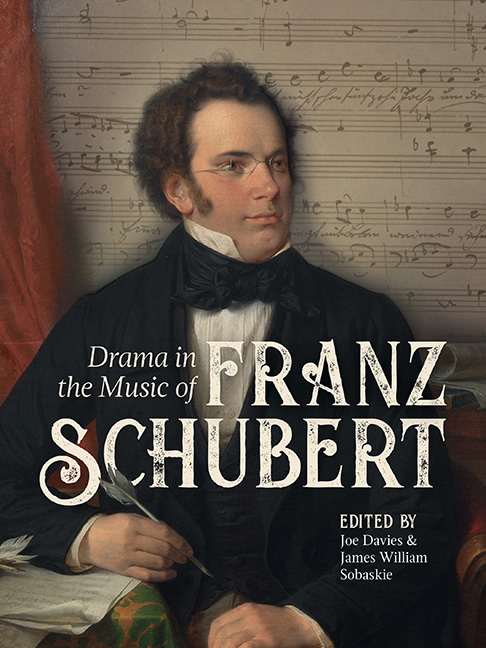Preface
Published online by Cambridge University Press: 25 March 2020
Summary
Constraints and Misconceptions
As Lorraine Byrne Bodley suggests in the first chapter of our volume, Franz Schubert was thought a failure in the field of dramatic music throughout much of the twentieth century. This perception stemmed in part from the lack of critical acclaim for certain of his large-scale stage works, as well as ignorance of other projects that were never performed nor closely studied. For instance, the melodrama Die Zauberharfe (D. 644) and the Singspiel Die Zwillingsbrüder (D. 647) were briefly staged in Vienna during 1820, but they attracted little attention and enjoyed no revivals during the composer's lifetime. Regrettably, the more substantial operas Alfonso und Estrella (D. 732; 1822) and Fierabras (D. 796; 1823) were never produced, while several other promising theatrical endeavours, including Adrast (D. 137; 1817), Claudine von Villa Bella (D. 239; 1815), and Der Graf von Gleichen (D. 918; 1827), as well as the sacred oratorio Lazarus (D. 689; 1820), remained incomplete at his death. Without positive critical reception of these works, and no demonstrable evidence of their influence on later composers, the opinion arose that Schubert lacked the capacity for dramatic music.
Many factors seem to have conspired to limit Schubert's success in the venerable vocal domain. Italian and French opera remained dominant in early nineteenthcentury Vienna, and new, home-grown works were hard-pressed to compete. The unique achievements of Mozart's Die Entführung aus dem Serail (K. 384; 1782) and Die Zauberflöte (K. 620; 1791) were difficult to duplicate and had not yet led to a strong, clearly defined German tradition, while the implications of Carl Maria von Weber's Der Freischutz (Op. 77; 1821) had not yet been fully realized. There was limited local financial support for opera at the time, and, quite understandably, benefactors hesitated to take chances on unproven artists. Certainly the implications of the newly emerging Romantic aesthetic for dramatic music were not quite clear. And of course, Schubert needed to earn a living and could not focus solely on opera. While this survey surely represents an over-simplification of the composer's creative circumstances, it appears that the time just was not right for Schubert to contribute to traditionally recognized dramatic genres.
- Type
- Chapter
- Information
- Drama in the Music of Franz Schubert , pp. xxi - xxxPublisher: Boydell & BrewerPrint publication year: 2019



